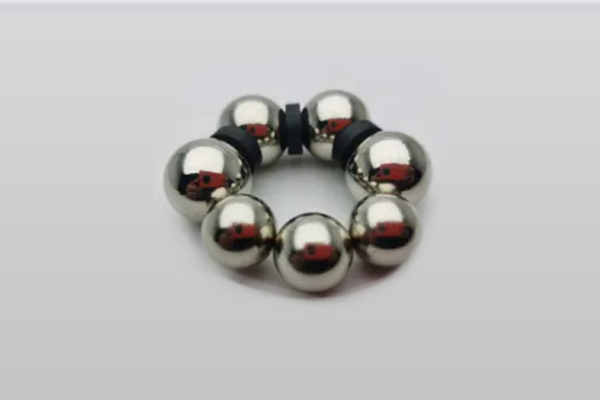A Guide on Features of Neodymium Ball Magnets

Neodymium magnets are commonly called rare earth magnets and they are the most powerful kind of magnet. A neodymium magnet is an alloy of three metals; neodymium, iron and boron- NIB, NdFeB- or neo magnets. They come in various shapes. Neodymium ball magnets are also called spherical. They have applications in various industries. Just like bar, arc, ring, cylindrical and pot shapes, ball magnets have different sizes, giving the customer more choice in deciding which is the most appropriate for their application. There are few factors a prospective customer should reflect on besides size of a ball magnet. One of these factors is the grade. Each Neo magnet sold on the internet should be graded regardless of its shape. A customer should know what different N-ratings mean. As one counts from the N35 to N55, the magnetic field of magnets located anywhere in the scale increases. So if one wants the strongest NIB ball magnet they should choose the N55. Also a highly rated magnet boasts the highest energy product, coercivity and remanence. If an application will demand a high amount of working temperature, one should perhaps get a magnet with high coercivity. This one will not be easily demagnetized. The Curie temperature of neodymium magnets is not very high. It ranges from +200 to +230 degrees Celsius. It means that one cannot heat their neodymium ball magnets beyond the above-mentioned Curie temperature. Although it is the recommended range, in theory, some highly ranked grades can beat it in practice. In case the working temperature will go beyond +230, one should consider Samarium Cobalt magnets. Alternatively called Rare-Earth Cobalt, RECo or SmCo, Samarium Cobalt is a form of a permanent magnet that proves to be more stable than neodymium in high temperatures. Its Curie temperature is between +250 and +350 degrees Celsius. Another fascinating detail is that neodymium performs optimally until it reaches +150 degrees C while Rare Earth Cobalt's performance shoots from +130 to +160 degrees Celsius. In terms of magnetic field strength, SmCo cannot outdo neodymium. Additionally, samarium-cobalt magnets are considered better than neodymium magnets because they do not rust. NdFeB ball magnet will rust if it lacks a special coating or plating layer. Thus a potential customer should always buy spherical NIB magnets that are plated or coated. This will ensure that their applications will indeed be permanent. Although these items are susceptible to corrosion, they need not be stored in a keeper or case. They are permanent, therefore, as long as they are in the right environment they can be very durable. Some of the materials used for plating or coating cannot last long, including epoxy, especially if the surroundings are not conducive. Neodymium ball magnets feature different prices depending on where they are sold on the internet. Even so, one should pay attention to the quality of the magnet rather than the low cost.















